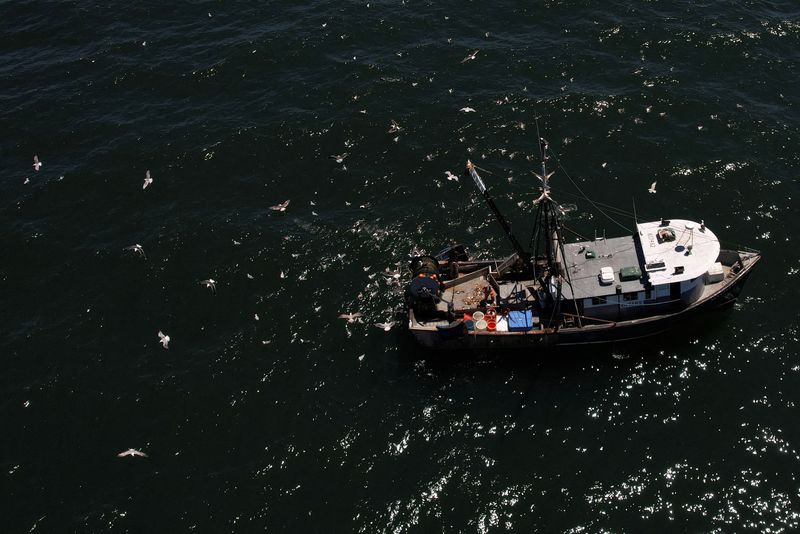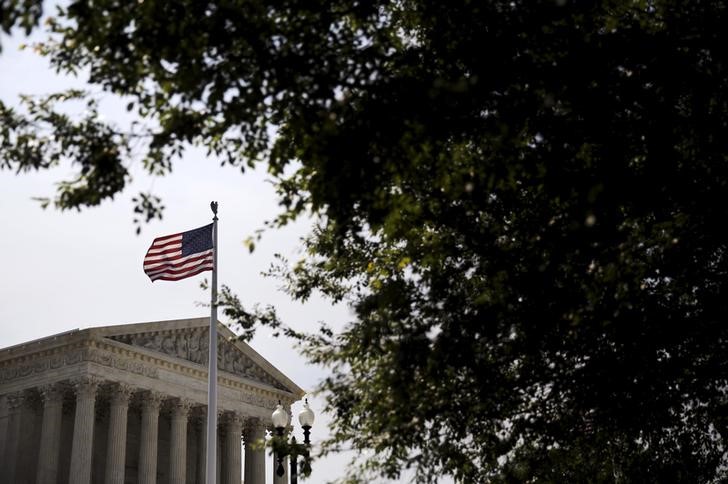By John Kruzel
WASHINGTON (Reuters) - The U.S. Supreme Court on Monday agreed to decide whether the government can require commercial fishermen to help fund a program monitoring herring catches off New England's coast in a case that could undercut the regulatory power of federal agencies.
The justices took up an appeal by New Jersey-based fishing companies of a lower court's ruling in favor of the U.S. government in a challenge to a conservation program overseen by the National Marine Fisheries Service. The program was begun in 2020 under former President Donald Trump and is being defended by President Joe Biden's administration.
The case is the latest bid asking the Supreme Court, which has a 6-3 conservative majority, to rein in the authority of federal agencies. The companies are asking the Supreme Court to overturn its own decades-old precedent calling for judges to defer to federal agency interpretation of U.S. laws, a doctrine called " Chevron (NYSE:CVX) deference."
The regulations called for certain fishermen to carry aboard their vessels U.S. government contractors and pay for their at-sea services while they monitored the catch. The New England herring fishing regulations were issued by the fisheries service, part of the U.S. Commerce Department.
Amid concerns about overfishing and fishery management, the program aims to monitor 50 percent of declared herring fishing trips in the regulated area, with program costs split between the federal government and the fishing industry. The monitors assess the amount and type of catch including species inadvertently caught.
The cost of paying for the monitoring services was an estimated $710 per day for 19 days a year, which could reduce a vessel's income by up to 20 percent, according to government figures.
The Biden administration said in court papers that the monitoring program will be suspended for the fishing year starting in April due to insufficient federal funding.
The challengers, including lead plaintiff Loper Bright Enterprises, sued the government in 2020 in federal court, claiming the requirement that they help pay for monitoring exceeded the agency's authority under existing law.
The Biden administration, which continued the program, in court papers has argued that the fisheries service is authorized under a 1976 U.S. law called the Magnuson-Stevens Act to protect against overfishing in U.S. coastal waters.
The Washington-based U.S. Court of Appeals for the District of Columbia Circuit last year ruled in favor of the administration, affirming a federal judge's decision. The D.C. Circuit found that the regulation was entitled to deference under the 1984 Supreme Court ruling, Chevron v. Natural Resources Defense Council, that directed judges to defer to a U.S. agency's interpretation of laws that may be ambiguous.
Attorneys for the commercial fishermen said the Chevron deference doctrine "encourages the executive branch's aggrandizement at the expense of the judiciary, Congress and the citizenry."
The court's conservative majority has signaled skepticism toward expansive regulatory power in rulings in recent years including one in 2022 that limited the Environmental Protection Agency's authority to issue sweeping regulations to reduce carbon emissions from power plants.

The Supreme Court is due to hear the case in its next term, which begins in October.
Liberal Justice Ketanji Brown Jackson, who participated in oral arguments in the case as a lower court judge, took no part in the consideration of the petition for appeal.
